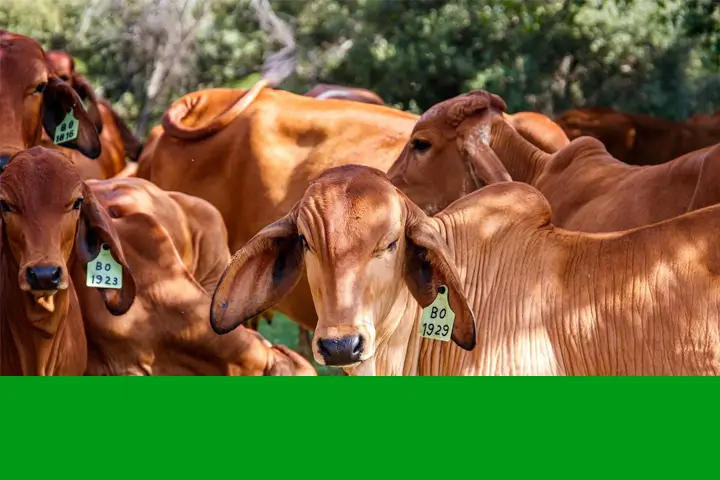
Namibia’s Ministry of Agriculture, Water and Land Reform, in a collaborative effort with the European Union, is embarking on a groundbreaking initiative to improve the country’s national herd. The project involves the establishment of an artificial insemination facility at the Okapya Livestock Development Centre, strategically located in the Oshikoto Region. The primary aim of this initiative is to provide farmers with access to subsidized insemination services, thereby elevating the overall quality of their herds.
The Oshikoto Region lies north of the Veterinary Cordon Fence and encompasses the Northern Communal Areas (NCAs). In recent times, farmers in this region have faced challenges related to inbreeding within their cattle herds, which have had adverse effects on livestock production and reproduction. To address this pressing issue, the Ministry of Agriculture, Water and Land Reform will undertake extension and mentorship programs to encourage bull exchange initiatives between villages, constituencies, and regions.
The Northern Communal Areas boast an estimated livestock population of 1.5 million, making this endeavor all the more crucial for sustainable agriculture and economic growth in the region. Past experiences have demonstrated the vulnerability of livestock to Foot-and-Mouth Disease restrictions imposed in the North and Northeastern parts of the country. Therefore, enhancing the quality of the national herd is not only vital for farmers’ livelihoods but also for safeguarding against potential disease outbreaks that can disrupt the agricultural sector.
The artificial insemination facility at Okapya Livestock Development Centre will play a pivotal role in improving the breeding quality of livestock in the Northern Communal Areas. By promoting bull improvement initiatives and encouraging the early castration of inferior bulls, farmers can focus on breeding superior livestock with desirable traits. This will ultimately lead to more robust and resilient herds that are better equipped to thrive in various environmental conditions.
One of the essential components of this initiative is the procurement of indigenous eco-type cows and bulls, particularly from the Kunene Region. These animals will be acquired from local farmers to encourage breeding and conservation efforts. The selected animals will then be housed at the Okapya Livestock Development Centre, where they will be further developed to ensure their genetic purity and superior qualities are preserved.
Notably, other regions in Namibia, such as the North Central, Zambezi, Kavango East, and Kavango West, are already actively involved in eco-type conservation and breeding programs. The respective Livestock Development Centers in these regions are dedicated to these initiatives, signifying the nation’s commitment to sustainable agricultural practices and biodiversity preservation.
The Ministry of Agriculture spokesperson, Jona Musheko, emphasized the importance of maintaining genetic diversity within the national herd. The Okapya Livestock Development Centre will serve as a hub for high-quality Sanga/Nguni bulls from various areas of the Northern Communal Areas. The collected semen will be frozen and stored for future use, enabling farmers to access and utilize semen from these superior bulls to improve the quality of their herds.
As part of its continued support to farmers, the Ministry has also released a tender to upgrade the slaughtering house at Opuwo to a full-fledged abattoir. This initiative is expected to improve the value chain of livestock production, benefiting farmers by ensuring efficient and hygienic processing of their animals for the market.
In conclusion, Namibia’s collaboration with the European Union to establish the artificial insemination facility at Okapya Livestock Development Centre is a groundbreaking move towards enhancing the quality of the national herd. By addressing the challenges of inbreeding and promoting the breeding of superior livestock, this initiative will not only boost farmers’ livelihoods but also strengthen the nation’s agricultural resilience and food security. The commitment to conserving indigenous eco-types and ensuring genetic diversity is a testament to Namibia’s dedication to sustainable agricultural practices and the preservation of its unique biodiversity.
Stay updated with the latest farming tips and agriculture industry news from Africa by subscribing to our newsletter. Don’t miss out on valuable insights and updates. Follow us on Twitter, LinkedIn, and Facebook to join our farming community and stay connected with us.



















